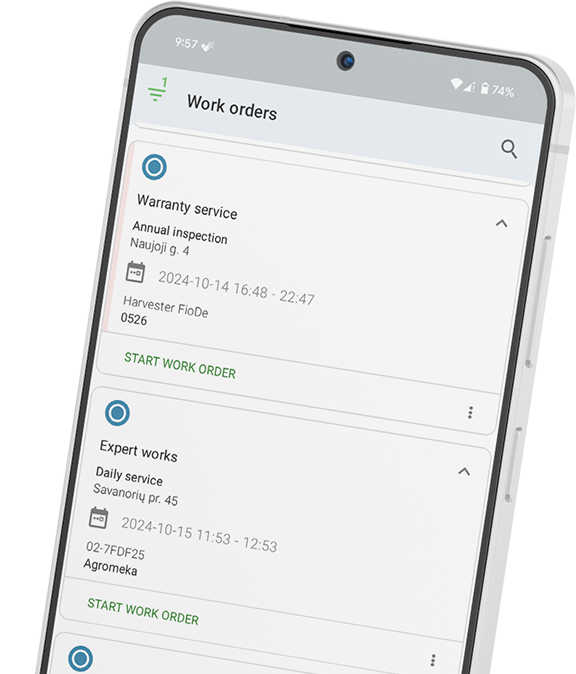Bring simplicity to your field service operations.
Our list of integrations is updated frequently. Explore each integration in its own separate page for more information.
About a year ago, we identified the 10 key principles of Service Operations Management (SOM). Today, we’ll dive a bit deeper into the concept and explore areas that have evolved over the past couple of years. Let’s jump right in.
Service operations management refers to the efficient utilization and running of a business’ main departments such as human resources, marketing, accounting, technicians, and more. In a business world, as competitive, fast, and dynamic as the one we live in today, service operations managers are being asked to handle a lot, and their job has never been more challenging.
Here are some of the challenges they need to handle on a daily basis:
How can all of the above be achieved by one person? With the right field service management solution. By observing the list of obligations and responsibilities of a service operations manager, it becomes very apparent that they need a digital solution that will eliminate manual involvement and automate a lot of these processes.
Thankfully, the technology around this subject matter has evolved at a rapid pace over the past couple of years with solutions that can improve service delivery, service quality, customer satisfaction, and overall supply chain management.
What used to happen in the past, is a combination of specialized service management solutions that dealt with each department separately. One solution for invoicing, another one for marketing, and so on and so forth. The result was a complicated maze of platforms and an even more complicated entanglement of service processes.
Here are a few examples of the different solutions service managers had to oversee in order to create an end-to-end services operations management cycle:
Modern service operation management has moved past the fragmented solution model to a centralized solution model. What a service manager wants to see from a solution is a single-view dashboard with clear sections that helps them drive continuous improvement.
Managers want to be able to manage service requests, track raw materials, update customer information, oversee quality assurance, and handle all processes from one platform. Let’s get into some details about the value a solution like Frontu can bring to a company.
Put yourself in the shoes of a field service technician – you have to travel from job site to job site, be in constant communication with the head office about changes or feedback, talk to customers, invoice customers and deliver the actual task.
How much time do they spend answering and talking on the phone? How much time do they spend and how stressed are they about signing, and storing paper documents? What about losing time in traffic to get from one project to another?
With Frontu, technicians have answers to all these challenges, eliminating a lot of the admin associated with their job description. The GPS feature of the Frontu app gives them the fastest route to job sites, considering factors such as traffic and weather conditions. Documents are signed and stored digitally, removing any manual involvement. All communication happens on the platform, removing the need for excessive phone calls.
Technicians can focus on the task at hand and invest more energy in developing meaningful relationships with customers. The process automation afforded by Frontu helps with productivity and employee satisfaction.
Service operations management is an endless decision-making rollercoaster. Big or small, critical or trivial, managers have to drive projects forward by making these decisions. What Frontu can do for decision-makers is provide data, findings, and insights that can contextualize these decisions.
Decisions should be based on facts, not sentiment or gut feeling. Improving service delivery should be based on adjustments to current results. By using Frontu, service organizations can make full use of the reporting feature and analyze productivity and service performance. as
One of the most underrated areas of service operations management is the ability to be one step ahead of potential problems. Frontu can help managers set up preventive maintenance parameters, prolong equipment lifespan and save costs for the company.
Alerts and reminders can notify you of when it’s time to service equipment, change tires, order new parts and be on top of all maintenance initiatives without fail. As a matter of fact, according to the US Dept. of Energy, a company can save between 12 and 18% when using a preventive maintenance approach compared to the reactive model.

Our list of integrations is updated frequently. Explore each integration in its own separate page for more information.

Link copied!